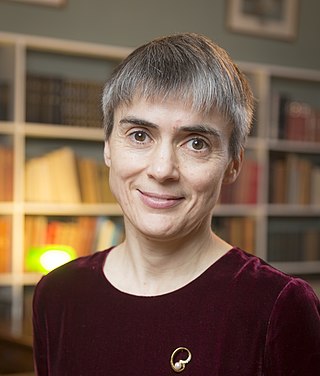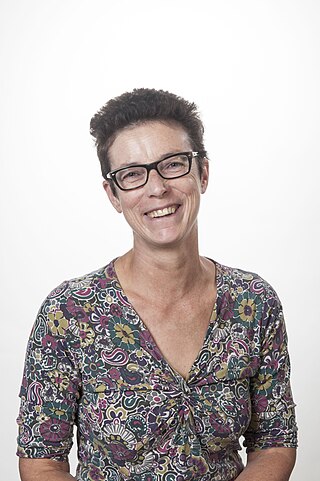
The John Innes Centre (JIC), located in Norwich, Norfolk, England, is an independent centre for research and training in plant and microbial science founded in 1910. It is a registered charity grant-aided by the Biotechnology and Biological Sciences Research Council (BBSRC), the European Research Council (ERC) and the Bill and Melinda Gates Foundation and is a member of the Norwich Research Park. In 2017, the John Innes Centre was awarded a gold Athena SWAN Charter award for equality in the workplace.
The Science and Engineering Research Council (SERC) and its predecessor the Science Research Council (SRC) were the UK agencies in charge of publicly funded scientific and engineering research activities, including astronomy, biotechnology and biological sciences, space research and particle physics, between 1965 and 1994.
Biotechnology and Biological Sciences Research Council (BBSRC), part of UK Research and Innovation, is a non-departmental public body (NDPB), and is the largest UK public funder of non-medical bioscience. It predominantly funds scientific research institutes and university research departments in the UK.

The National Institute of Agricultural Botany (NIAB) is a plant science research company based in Cambridge, UK.

Dame Henrietta Miriam Ottoline Leyser is a British plant biologist and Regius Professor of Botany at the University of Cambridge who is on secondment as CEO of UK Research and Innovation (UKRI). From 2013 to 2020 she was the director of the Sainsbury Laboratory, Cambridge.
Vivienne Mary Hunt Parry is a British science journalist and author, currently employed as head of engagement at Genomics England. She is most well known for presenting BBC Television science programme Tomorrow's World and Panorama. She is also a regular contributor to The Guardian newspaper's online presence.

Catherine Rosemary Martin is a Professor of Plant Sciences at the University of East Anglia (UEA) and project leader at the John Innes Centre, Norwich, co-ordinating research into the relationship between diet and health and how crops can be fortified to improve diets and address escalating chronic disease globally.

Sir Shankar Balasubramanian is an Indian-born British chemist and Herchel Smith Professor of Medicinal Chemistry in the Department of Chemistry at the University of Cambridge, Senior Group Leader at the Cancer Research UK Cambridge Institute and Fellow of Trinity College, Cambridge. He is recognised for his contributions in the field of nucleic acids. He is scientific founder of Solexa and biomodal.

Christopher Michael Wathes was a British research scientist who specialised in agricultural and veterinary science.
The Wheat Improvement Strategic Programme (WISP) is a Biotechnology and Biological Sciences Research Council (BBSRC) funded collaborative programme for wheat improvement, which brings together experts from five UK institutions: John Innes Centre, Rothamsted Research, the National Institute for Agricultural Botany (NIAB) and the University of Nottingham, and the University of Bristol. The programme is divided into four pillars and two themes.
Polly Roy OBE is a professor and Chair of Virology at The London School of Hygiene and Tropical Medicine. She attended a number of schools which included Columbia University Medical School, Rutgers University, University of Alabama, and University of Oxford. In 2001 she became a part of The London School of Hygiene and Tropical Medicine and, along with being the chair of Virology, is also the co-organiser of the medical microbiology course. The virus that she has dedicated most of her career to is Bluetongue disease that affects sheep and cattle. She became interested in this virus after attending a symposium and was intrigued by the fact that not much was known about the virus that was causing such a nasty and sometimes fatal disease.
Julia Rose Gog is a British mathematician and professor of mathematical biology in the faculty of mathematics at the University of Cambridge. She is also a David N. Moore fellow, director of studies in mathematics at Queens' College, Cambridge and a member of both the Cambridge immunology network and the infectious diseases interdisciplinary research centre.
Susan RosserFRSB FLSW is a professor of Synthetic Biology at the University of Edinburgh.

Emily Fleur Shuckburgh is a climate scientist, mathematician and science communicator. She is Director of Cambridge Zero, the University of Cambridge's climate change initiative, Academic Director of the Institute of Computing for Climate Science, and is a fellow of Darwin College, Cambridge. Her research interests include the dynamics of the atmosphere, oceans and climate and environmental data science. She is a theoretician, numerical modeller and observational scientist.
The Crop Science Centre is an alliance between the University of Cambridge and National Institute of Agricultural Botany (NIAB).

Anne Elisabeth Osbourn is a professor of biology and group leader at the John Innes Centre, where she investigates plant natural product biosynthesis. She discovered that in the plant genome, the genes involved with biosynthesis organise in clusters. She is also a popular science communicator, poet and is the founder of the Science, Art and Writing (SAW) Initiative. She was elected a member of the National Academy of Sciences in 2022.
Juliet Osborne is an entomologist and ecologist in the UK. She is professor of applied ecology at the University of Exeter and she looks at the health of social insects and how they pollinate plants.

Helen Mary Sang is the head of the Division of Developmental Biology at the Roslin Institute of the University of Edinburgh. Her research considers the development of chickens that cannot spread avian influenza. She has previously served on the Biotechnology and Biological Sciences Research Council.
Laura Elizabeth Green is a British epidemiologist and academic who is Pro-vice-chancellor and Head of the College of Life and Environmental Sciences at the University of Birmingham. She serves on the council of the Biotechnology and Biological Sciences Research Council (BBSRC).

DameMelanie Joanne Welham is a British biochemist who was Executive Chair of the Biotechnology and Biological Sciences Research Council from April 2018 to June 2023. She was previously a professor of biochemistry at the University of Bath, where she worked on stem cell biology.